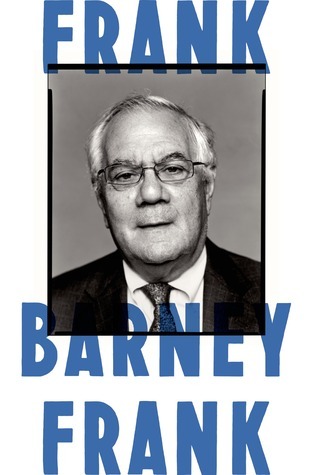What do you think?
Rate this book


400 pages, Hardcover
First published March 17, 2015
“If every issue is always on the active agenda, if an issue that was already disposed of by a majority can be reopened whenever the side that lost regains an advantage, instability infects not just the body that made that decision but also the society that it is governed by. It is the explicit rejection of that principle by the Tea Party Republicans that contributes heavily to political gridlock. A representative or senator’s effectiveness thus is based on his or her ability to deal with a very wide range of issues, with never enough time, and with little guidance from others” (73).
“In a civilized society that needs a profit-driven private sector and a tax-funded public sector, it is all the people’s money. The task facing sensible people is to distinguish between the personal or family needs and wants best fulfilled by individual spending choices and those societal goals that can be achieved only if we pool our resources to buy collective goods” (171-2).
“Representative government in a capitalist society involves the coexistence of two systems—an economic one, in which a person’s influence necessarily increases with his or her wealth, and a political one, in which every citizen is supposed to have an equal say. If the mechanisms of the free market are going to work, that is, if they are going to increase productivity through incentives and allocate resources efficiently, money must drive decisions. For democracy to fulfill its moral promise, everyone’s vote should have the same weight in making the rules by which we govern ourselves” (183).Hallelujah, he should be teaching civics in high school!
“Democrats will regain a fighting chance to win majority support among working- and middle-class white men only when we demonstrate the will—and capacity—to respond to the economic distress inflicted on them” (187).
“The NRA does what I have long begged my LGBT allies to do, at first with mixed results, and more recently with much greater success. They urge all of their adherents to get on the voting rolls. They are diligent to the point of obsession in making sure that elected officials hear from everyone in their constituencies who opposes any limits on guns, especially when a relevant measure is being considered, and they then do an extraordinary job of informing their supporters of how those officials cast their votes” (203).
When the package was completed I charged that paying for inheritance tax cuts by reducing Medicare spending effectively elevated the claims of rich dead people over those of sick, living middle-class ones.
Ballplayers do not argue with the umpire so that he'll change the decision in question. They want to be on his mind when he makes the next one.
(ebook p. 380, Ch. 7, Welcome to an Earmark)
The argument against imports from Canada was the insincere claim that they might endanger old people's health--it was advanced by those who more often accused drug safety regulators of overreaching. I will drop my charge of insincerity the first time I read about defective drugs producing a lot of dead Canadians.
(ebook p. 421-22, Ch 8 Defending Clinton)
The NAACP lawyers were not acquiescing to the constitutionality of separate but equal--they were pursuing a thoughtful, tough-minded strategy to overthrow it. Incrementalism is not the enemy of militancy; it is often to only effective means of expressing it.
(ebook p.435, Ch. 8, Defending Clinton)
This time my logic was irrefutable. If the House were to assert that gay men are security risks, I announced, I would consider it my patriotic duty to provide a list of gay members to the appropriate authorities. Dornan backed down, undoubtedly at the urging of his own party leadership, and denounced me for my threat.
(ebook p. 306, Ch 6, The True story of Don't Ask, Don't Tell)